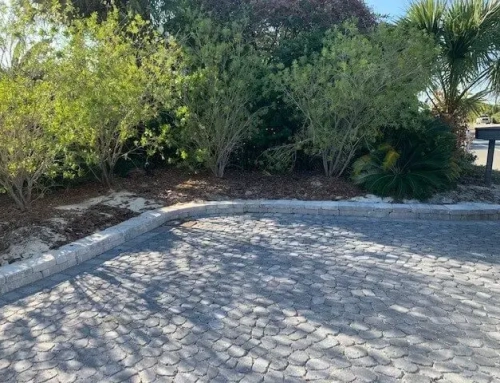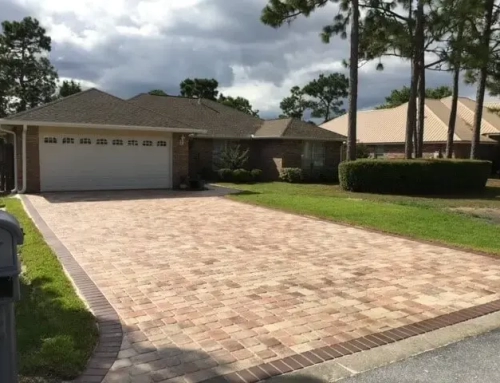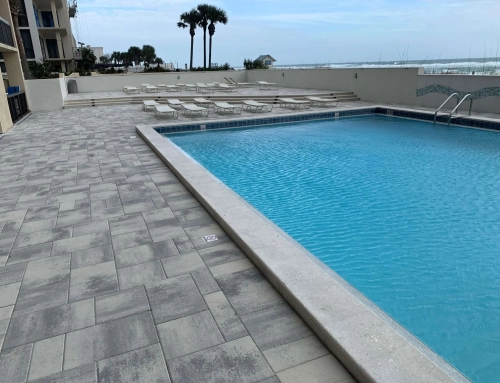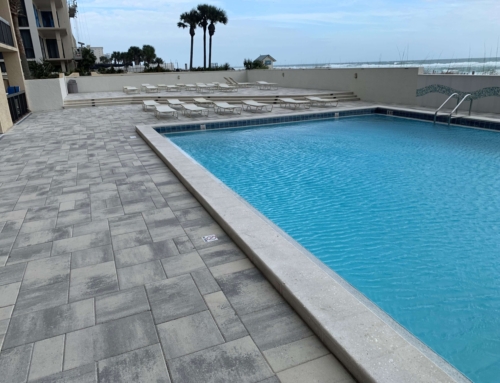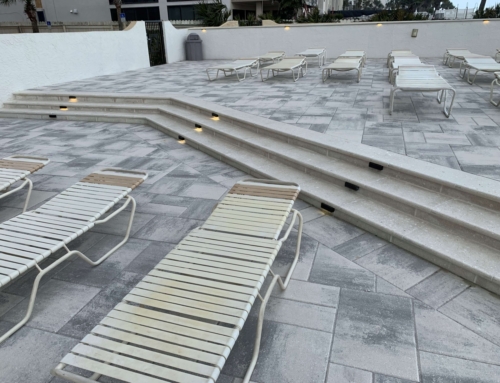When planning or maintaining a paver pool deck and spa area, homeowners often have several common questions. Addressing these concerns can help you make informed decisions and ensure the longevity and safety of your outdoor space.
Are Paver Pool Decks Safe?
- Slip Resistance:
- Paver pool decks are generally safe due to their textured surfaces, which provide excellent slip resistance. This is particularly important around pools where water is frequently present.
- Choosing the right paver material, such as natural stone or textured concrete, further enhances slip resistance. Additionally, anti-slip treatments can be applied to increase traction.
- Heat Management:
- In hot climates, some paver materials can become warm underfoot, but light-colored pavers like travertine or limestone typically stay cooler. This helps reduce the risk of burns on bare feet.
- Incorporating shade elements, such as umbrellas or pergolas, can also help keep the surface temperature of your pool deck manageable.
How Long Do Paver Pool Decks Last?
- Lifespan of Paver Pool Decks:
- With proper installation and maintenance, paver pool decks can last for decades, often 25 to 50 years or more. This longevity surpasses many other materials, such as wood or poured concrete, which may need more frequent replacement or repair.
- Factors Influencing Durability:
- The lifespan of your paver pool deck can be affected by factors like the quality of the pavers, the stability of the base, exposure to elements, and regular maintenance. Sealing the pavers and addressing any minor repairs promptly can significantly extend the life of your deck.
Can Paver Pool Decks Handle Heavy Loads?
- Structural Integrity:
- Paver pool decks are designed to handle heavy loads, making them suitable for high-traffic areas, including spaces around spas, seating areas, and outdoor kitchens. The interlocking nature of pavers distributes weight evenly, reducing the risk of cracking or shifting.
- Considerations for Spas and Heavy Furniture:
- When placing a spa or heavy furniture on your paver deck, ensure that the underlying base is well-compacted and properly prepared. This helps prevent settling or shifting over time.
What Maintenance is Required for Paver Pool Decks?
- Routine Maintenance:
- Paver pool decks require relatively low maintenance compared to other materials. Regular sweeping and occasional washing are usually sufficient to keep the deck clean. Additionally, sealing the pavers every 2-3 years helps protect against stains, chlorine, and UV damage.
- Repairing Damage:
- If a paver becomes cracked or damaged, it can be individually replaced without affecting the rest of the deck. This ease of repair is one of the significant advantages of using pavers. Regular inspections can help you catch and address issues before they become serious.
Can I Install a Paver Pool Deck Myself?
- DIY vs. Professional Installation:
- While installing a paver pool deck yourself is possible, especially if you have experience with landscaping or construction, it can be a challenging and labor-intensive project. DIY installation can save on labor costs, but it requires careful planning, proper tools, and attention to detail to ensure a level, stable surface.
- Technical Considerations:
- Installing a paver pool deck involves steps such as excavation, base preparation, paver laying, and joint sand application. Ensuring proper drainage and securing coping pavers around the pool are crucial for both safety and longevity. If you’re unsure about any part of the process, hiring a professional may be the best option to achieve a high-quality result.

